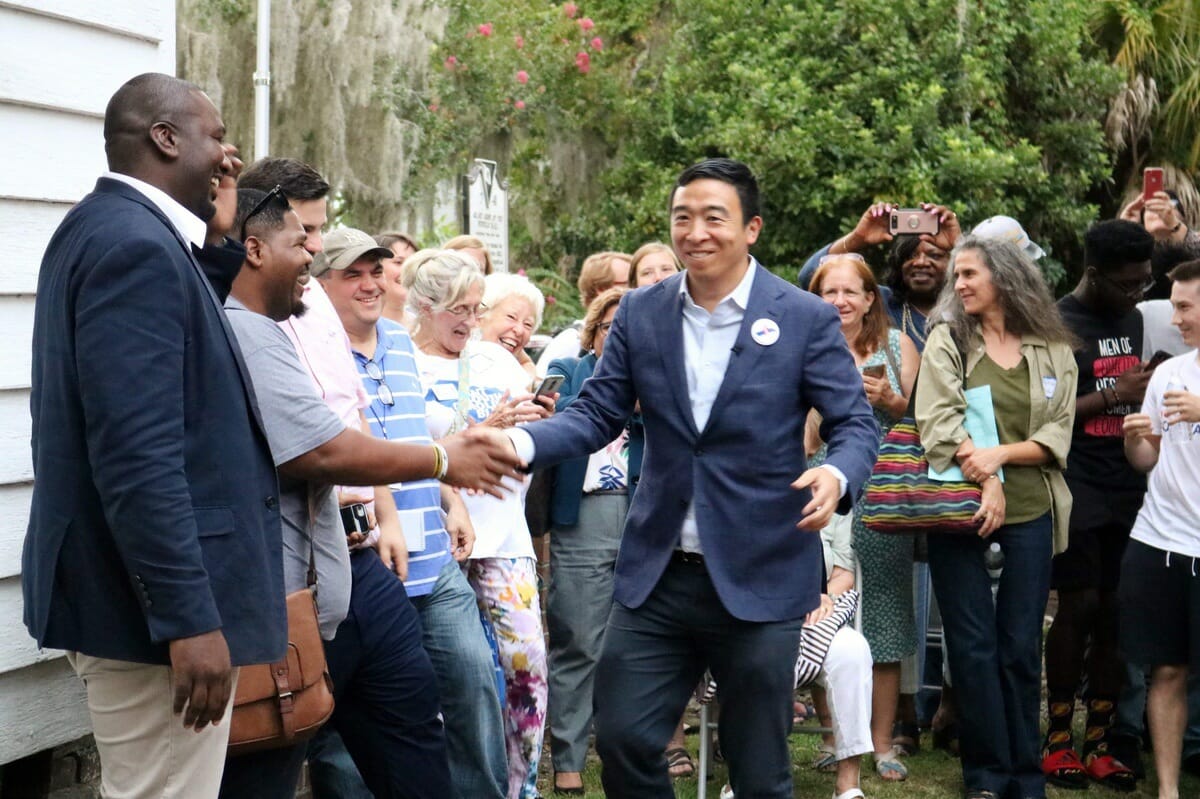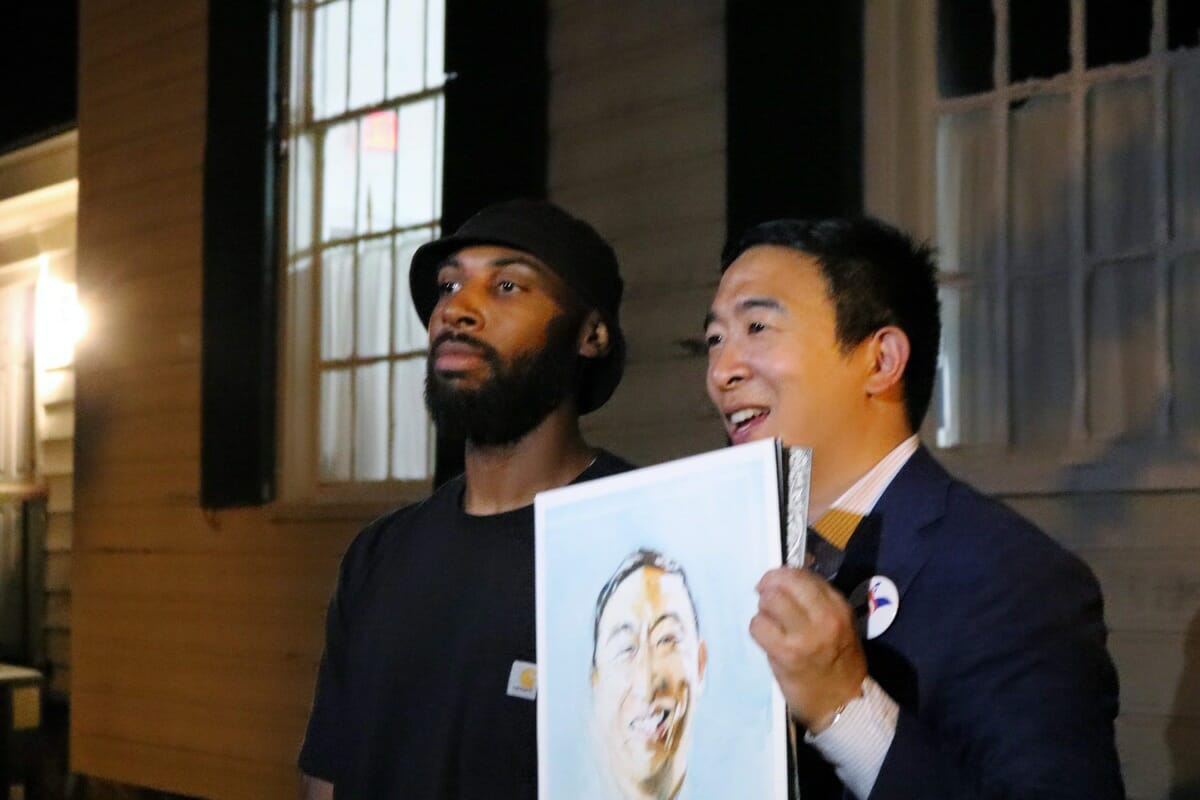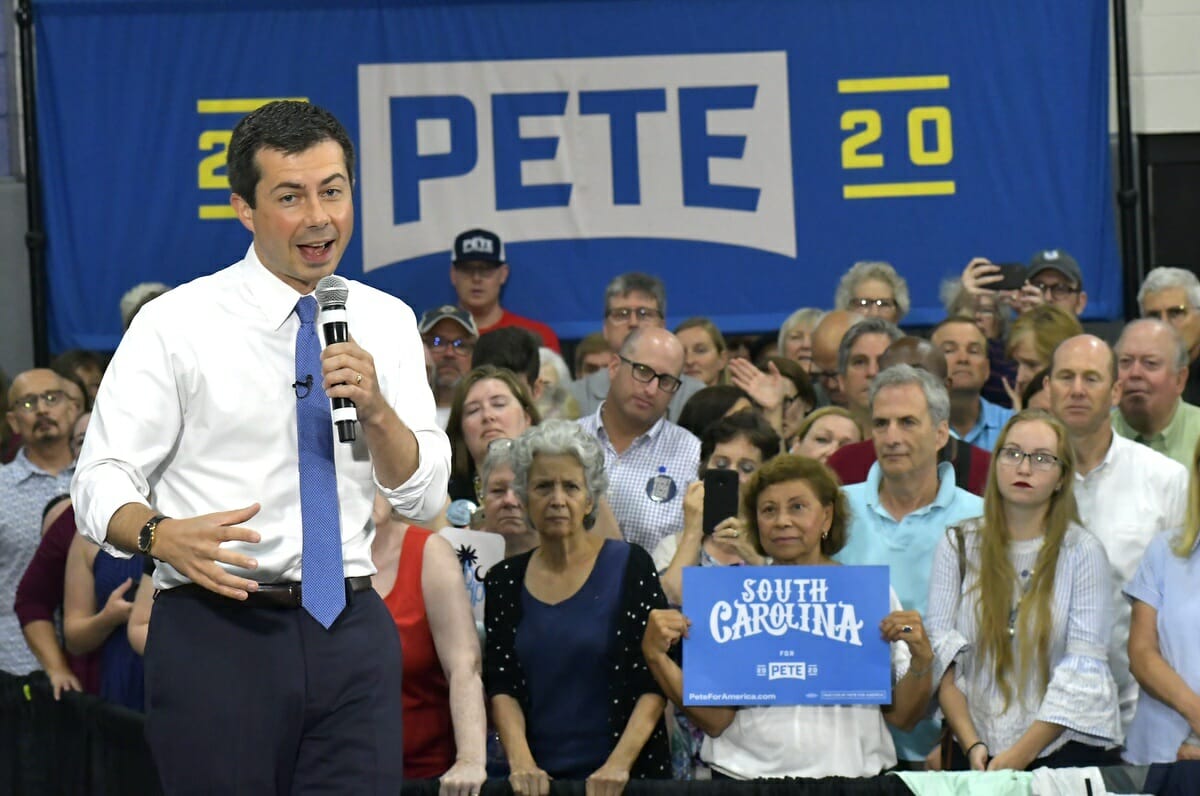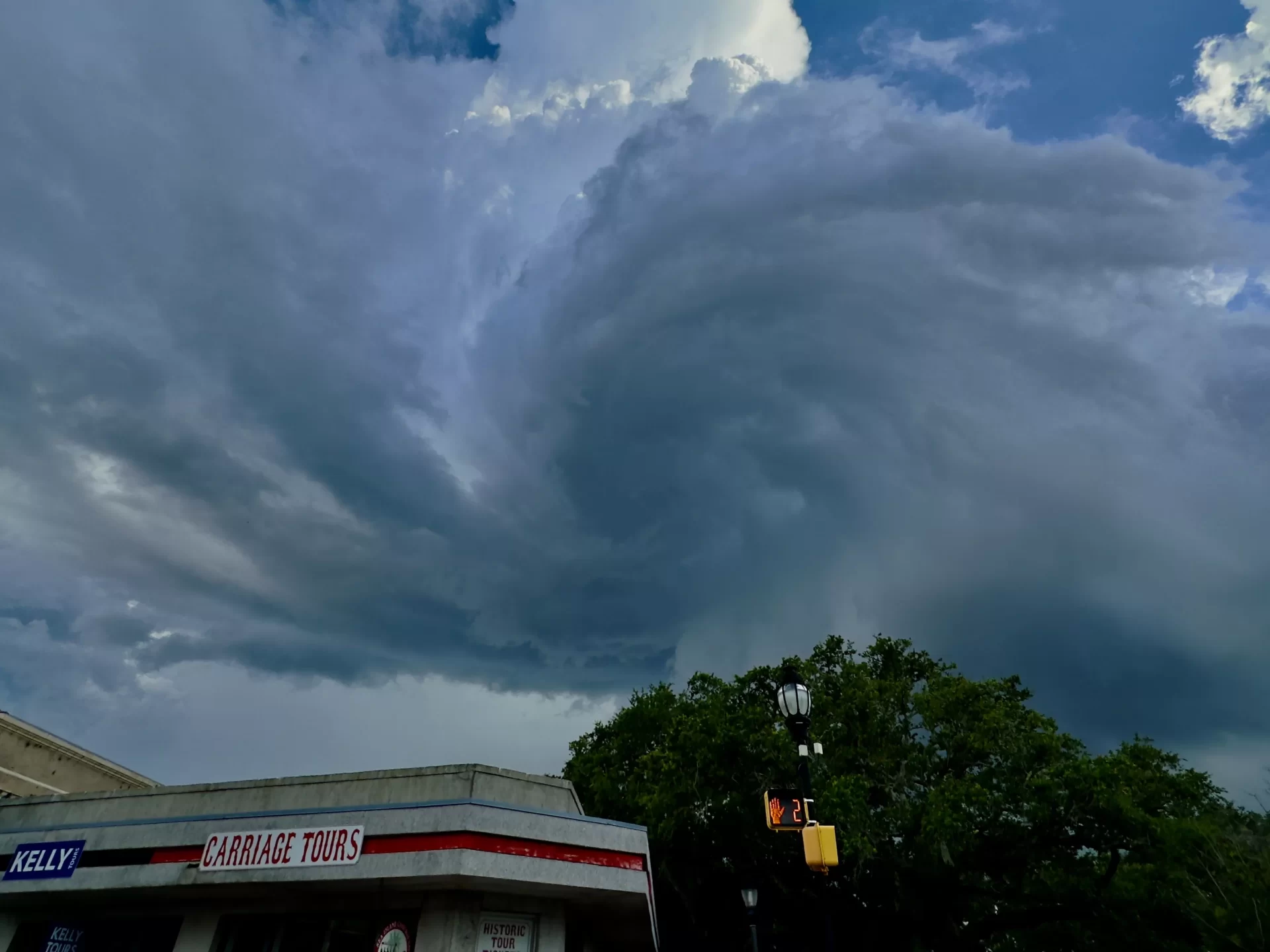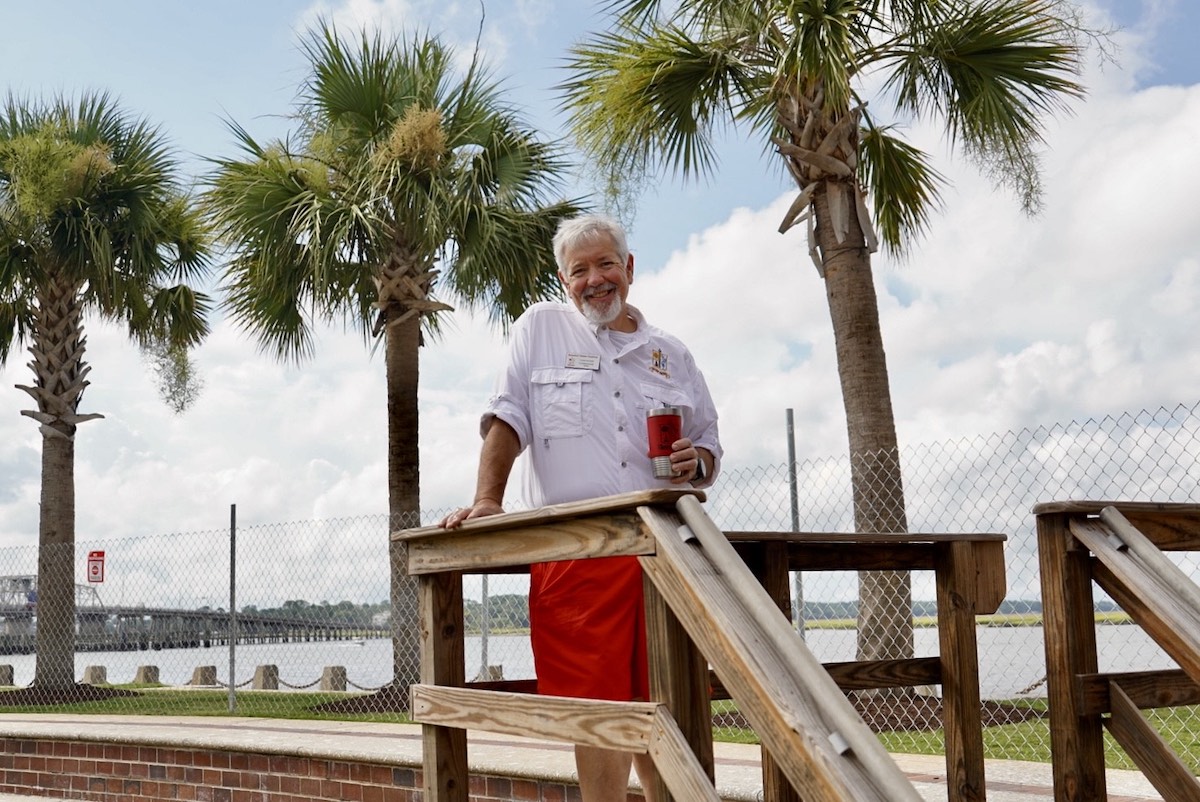By MIKE McCOMBS
There were nearly 100 people packed into the Grand Army of the Republic Hall on Thursday night and Andrew Yang wasn’t even there, yet.
As another 40 to 50 spectators gathered outside, it became increasingly clear that when Yang did arrive to speak at the North of the Broad Democratic Club’s monthly meeting, he wouldn’t be speaking inside.
When he did arrive, he was greeted to a rock star-like reaction before gathering his supporters into a semicircle in the courtyard outside the building to pass along his message.
The good-natured Yang talked and joked his way through his life experiences that led him to the point where he is now, a presidential candidate who never expected to be a presidential candidate.
“I’m not a career politician, I’m a career problem solver,” Yang said. “I never imagined I’d run for president.”
Yang believes in, as he calls it, “trickle up” economics. Pointing out that the “trickle down” version championed by Ronald Reagan and most Republicans since hasn’t worked for the middle class, Yang espoused his signature policy, the “Freedom Dividend.”
The Freedom Dividend is a form of Universal Basic Income (UBI), where all Americans 18 and older would receive $1,000 a month that would not be taxed.
While the idea seems radical, Yang pointed out that the United States has come close to adopting similar policies several times in the past, including twice during the early 1970s when such a plan actually passed the House of Representatives.
 “The fun thing about this campaign is there is a bit of a process where you’re digging into the ideas and you’re getting a sense of the history and the background and the rationale,” Yang said, “and I think more and more Americans are catching on to the idea that it’s not a radical idea, that it’s a deeply American idea that’s been with us for decades, maybe centuries. As more and more Americans open their eyes to that fact, then you’ll see the campaign grow and grow.”
“The fun thing about this campaign is there is a bit of a process where you’re digging into the ideas and you’re getting a sense of the history and the background and the rationale,” Yang said, “and I think more and more Americans are catching on to the idea that it’s not a radical idea, that it’s a deeply American idea that’s been with us for decades, maybe centuries. As more and more Americans open their eyes to that fact, then you’ll see the campaign grow and grow.”
Yang believes the UBI will soften the blow of an increasingly difficult U.S. labor landscape as a result of current and future job elimination due to automation. He believes the election of Donald Trump as president was directly related to the anxiety caused by the loss of such jobs that aren’t being replaced in the economy.
He pushed for simplifying the tax code, while eliminating the ability of big moneymakers like Amazon to get away with paying nothing, investing in infrastructure and preparing for sea-level rise and the most urgent effects of climate change.
And he is for the U.S. resuming space exploration, but at this point, he said, the government should take a back seat to the private companies that are further along in research and development.
Yang, depending on which study you believe, is somewhere between fifth and 10th in the most recent polls. Yet, he’s optimistic that his camaign can make up the necessary ground before the primaries.
“One great thing is that our data shows that we are less well known in South Carolina, than not just the other early states but in America,” Yang said. “So the fact that we’re as competitive as we are when most of America hasn’t heard about me and the campaign is really positive science, because the more people have heard about the campaign, the better we do. So the job is just to get the word out about us and the campaign.”
Above:
Presidential Candidate Andrew Yang arrives outside the Grand Army of the Republic Hall in Beaufort on Thursday night, August 15. Photo by Harmony Cadien.
Yang is greeted by Beaufort Mayor Billy Keyserling during the candidate’s tour of the Beaufort Black Chamber of Commerce. Photo by Jeff Evans.
Yang joins in with the Family Slide Line Dancers while touring the facilities of the Beaufort Black Chamber of Commerce. Photo by Jeff Evans.


